Research Associates
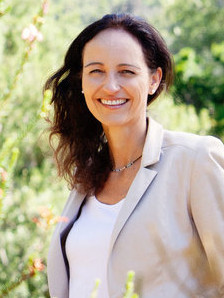
Dr Wendy Foden
Associate Professor: Stellenbosch University
Head: Cape Research Centre, South African National Parks
Chair: IUCN Species Survival Commission, Climate Change Specialist Group
Wendy’s research focuses on climate change vulnerability and adaptation in natural systems. As a researcher in SANBI’s Climate Change and Biodiversity Group, Wendy studied Namib Desert Quiver Trees and documented some of the first evidence of climate change impacts in arid ecosystems and on plants. She led SANBI’s Threatened Species Programme (2003-2007) where she initiated several Red Listing, atlasing and monitoring projects, and founded a scholarship for research on threatened species conservation. Thereafter, she initiated and led the IUCN Global Species Programme’s Climate Change Unit, based in Cambridge, UK (2007-2013) where she led development of the IUCN’s best-practice guidelines for assessing species’ vulnerability to climate change. Wendy recently won IUCN’s George Rabb award for innovative conservation and the British Ecological Society’s Marsh award for outstanding climate change research. In her role as head of the Cape Research Centre at South African National Parks, she leads development of the organisation’s Climate Change Preparedness strategy, including development of park-level vulnerability assessments, adaptation planning and ongoing climate change monitoring.
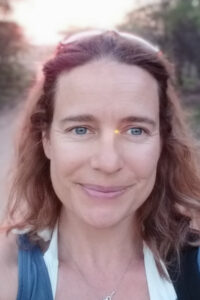
Dr Nicola Stevens
Trapnell Fellow for African Systems, Oxford University
Nikki’s research interests are centred around understanding vegetation dynamics in African savannas and how they are likely to change given increasing global change pressures like altered fire and herbivory regimes against a backdrop of changing CO2 concentrations. Along this vein she has become particularly interested in the phenomenon of woody encroachment where open ecosystems across the tropics are being invaded by native woody species. It has also driven her to improve our ability to predict future species ranges under global change by improving our mechanistic understanding of range edges in disturbance limited systems. She is currently based at the Environmental Change Institute at Oxford University but has ongoing projects in Southern Africa with the hopes to expand this research to other tropical savannas.

Dr Warren Joubert
Landscape Scientist: South African Environmental Observation Network
Warren’s work focuses on exchange fluxes between atmosphere, ocean and the terrestrial biosphere. His background is in ocean-atmosphere carbon cycling with a particular focus on CO2 exchange at the ocean-atmosphere interface. His PhD work investigated surface ocean primary productivity in the Atlantic Southern Ocean, using a variety of in situ measurement techniques. His recent work focussed on long-term observation of atmospheric chemicals as part of South Africa’s Global Atmosphere Watch Programme. His current work includes atmosphere-biosphere exchange fluxes using micro-meteorological techniques to monitor various carbon and energy exchanges fluxes in various landscapes in South Africa.
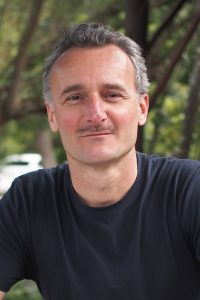
Dr Romain Pirard
Romain Pirard holds a PhD in Environmental Economics with 20 years of experience and a specialization in South-East Asia and Southern Africa. Among his fields of expertise: deforestation dynamics, climate change mitigation strategies, carbon markets, sustainable forest management, invasive alien species and related value chains, biochar, market-based instruments for ecosystem services and sustainable commodity supply chains.
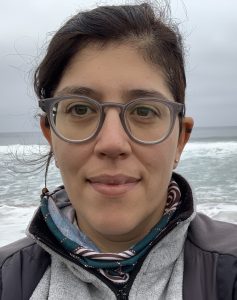
Dr Romina Henriques
Dr Henriques research focuses on population genomics and evolution of marine species, to assess the impact of exploitation and climate change on their genetic diversity and adaptation patterns. Her work explores how anthropogenic stressors affect species distribution, connectivity and hybridization patterns in exploited marine fishes, while developing conservation strategies that integrate genetic data to enhance biodiversity preservation. Her work advocates for the inclusion of molecular data for informing conservation and management policies, ultimately aiming to enhance understanding of marine biodiversity and address the challenges posed by environmental changes. Dr Henriques currently works across a broad range of species, from pyjama sharks to seagrasses and deep-water hakes. She is funded by the South African National Research Foundation, the European Union, the Revive & Restore Foundation and the Southeast Atlantic Fisheries Organization.
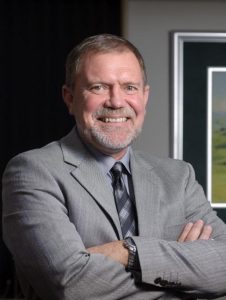
Prof Don Cowan
Prof Cowan began his career in enzymology and protein chemistry, initially focusing on high-temperature microorganisms. In 1999, after an opportunity to work in the Dry Valley deserts of Antarctica, his research transitioned into the field of microbial ecology, genomics and metagenomics. His Antarctic microbial ecology focus continued since that time, and his research group has published extensively on many aspects of Antarctic microbiomics. The last 15 years he turned his focus to the microbiomics of hot desert ecosystems, focussing on the Namib Desert. Prof Cowan’s broader research now spans global habitats, with a strong focus on how environmental change, particularly climate change, impacts soil microbiomes and their interactions with plants, including key crop species.

Dr Mohau Mateyisi
Dr Mohau Mateyisi is a theoretical physicist and climate scientist at the Council for Scientific and Industrial Research (CSIR). His research focuses on advancing climate modelling and climate services for decision-making in Southern Africa. With a background in atmospheric dynamics and statistical mechanics, he uses Earth System Models and machine learning to investigate the drivers of climate extremes across the Southern Hemisphere. He is a member of the World Climate Research Programme’s Working Group on Numerical Experimentation (WGNE). His work supports the development of value-added, user-centric climate services and early warning systems tailored to climate-sensitive sectors such as health, energy, agriculture, and infrastructure. A particular focus of his research is on the impacts of extreme heat on vulnerable communities in Southern Africa, helping to inform resilience strategies across the region.
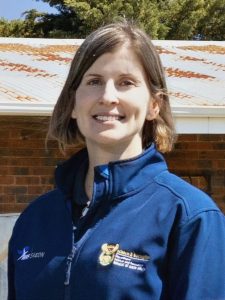
Dr Kathleen Smart
Dr Kathleen Smart is a Landscape Scientist at the South African Environmental Observation Network (SAEON), working within one of the research infrastructures, EFTEON (Expanded Freshwater and Terrestrial Environmental Observation Network). Kathleen obtained her PhD from the University of the Witwatersrand (2016) under the supervision of Bob Scholes, and her work focused on carbon, water, and energy flow through the semi-arid thicket biome and systems ecology to link fine-scale ecosystem processes to the bigger picture of global change. She leads the Biogeochemistry observations for EFTEON and is based in the Northern Drakensberg landscape.
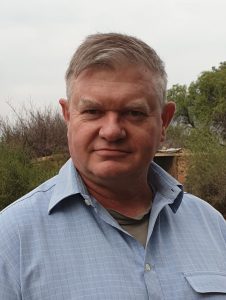
Dr Justin du Toit
Justin is Production Scientist at the Grootfontein Agricultural Development Institute in Middelburg, Eastern Cape. His research examines the drivers of vegetation change in the semi-arid Karoo, with particular emphasis on rainfall variability, drought, fire, and livestock grazing. He investigate how shifts in rainfall patterns and grazing pressure influence the balance between grasses and shrubs, and how these factors shape long-term ecosystem resilience. Fire is another important driver, especially in dwarf shrublands where it can trigger lasting changes in community composition. To track change, Justin collects data across the Karoo, draw on existing long-term datasets, and use tools such as repeat photography and satellite imagery to monitor vegetation patterns over time.
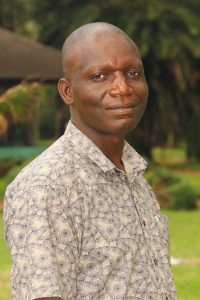
Peter Makumbe
Peter Makumbe is an ecologist and conservationist dedicated to fostering human-wildlife coexistence in shared landscapes, especially where communities, livestock and wildlife intersect. His passion lies in enhancing ecosystem resilience in changing environments. His work addresses the dual challenge of conserving nature and helping communities adapt to the impacts of climate change and promoting solutions that secure healthy landscapes. His current work focuses on human-wildlife dynamics in a migratory elephant population, applying geospatial modelling to understand movement, habitat use, and conflict risks. Peter is currently pursuing a PhD in Nature Conservation at Nelson Mandela University and serves as the Research Manager for the Oppenheimer Generations Research and Conservation at Shangani Holistic in Zimbabwe.
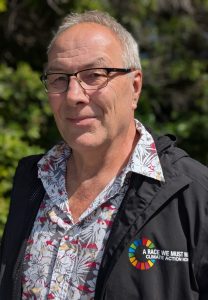
Dr Jussi Baade
Jussi’s research interests are in the field of human-environment interactions, with a focus on the relief sphere and fluvial dynamics. He is particularly interested in quantifying soil erosion through sediment discharge and high-precision mapping using terrestrial laser scanning (TLS). He is also particularly interested in artifacts of (early) anthropogenic landscape change and adaptation to environmental conditions, which can be found, for example, in arid and semi-arid regions in the form of irrigation terraces and irragic anthrosols. In South Africa, Jussi has worked on determining erosion rates in protected areas (e.g., Kruger National Park) and most recently led a multi-year research project on monitoring land degradation. He is particularly interested in the extent to which and by what means long-term observation series can be created that can distinguish short-term changes caused by annual fluctuations in atmospheric dynamics from long-term trends.

Prof Christiane Schmullius
Prof Christiane Schmullius has chaired the Department for Earth Observation at Germany’s Friedrich-Schiller-University Jena for the past 25 years. Following her MSc as a Fulbright Scholar at the University of California at Santa Barbara and her PhD focussing on radar remote sensing of crops, she headed the Geomatics-group at the Institute for Radio Frequency Technology, German Aerospace Center (DLR) from 1991-2000, and was Science Team Lead for the two NASA-DLR-ASI SIR-C/X-SAR radar shuttle missions in 1994 and DLR’s project scientist for the Shuttle Radar Topography Mission (SRTM) in February 2000. Her research focuses on terrestrial surfaces ranging from operational vegetation mapping (forest biomass and agriculture), land cover to soil moisture monitoring and application of operational and experimental Earth observation sensors in the optical and microwave domains. Prof Schmullius developed a comprehensive BSc remote sensing curriculum and a joint MSc degree in Geoinformatics and Remote Sensing. In 2010, she received the German Federal Cross of Merit (Bundesverdienstkreuz 1. Klasse) for achievements in Earth observation education. Prof. Schmullius has coordinated large international forest mapping projects since the mid-90s, and since 2010 her research focus changed to savanna vegetation monitoring. She was a member of the European Science Foundation’s European Space Science Council, ESA’s Earth Science Advisory Committee, the European Framework Program 7 Space Advisory Group, DLR’s Senate, the German Future Earth Committee, and Program Chair for the International Astronautical Congress. Prof. Schmullius has co-authored over 600 peer-reviewed articles and has written four book chapters, and has supervised over 90 Master theses, 38 dissertations and hosted 23 post-doctoral fellows, six of whom pursued their ‘habilitations’ (German tenure track and venia legendi requirement).

Andrew Gilder
Andrew Gilder is a leading South African private sector climate change, carbon markets, carbon tax and climate and carbon finance lawyer, and is a Director of Climate Legal with more than twenty-three years’ legal practice experience specialising in climate change (mitigation and adaptation), climate finance and development, carbon markets, carbon tax, environmental and energy law, policy and governance. Andrew has practical experience which expands over a range of African jurisdictions and overseas, and including advice to public and private sectors on the development and implementation of climate change, climate finance, carbon markets, carbon tax, environmental and energy law, policy and governance. His practical experience includes advising government, businesses and industries on climate change policy development and its implications, including climate change business risks and opportunities, assessing commercial relationships against evolving climate change policy and regulation and relevant contractual considerations, as well as advising on, negotiating and drafting of commercial contracts required to secure financial and logistical positions in the carbon market. Andrew was extensively involved in South Africa’s adaptation legal and policy alignment process which was mandated by the National Climate Change Response Policy (2011) and which led to Long Term Adaptation Scenarios.

Olivia Rumble
Olivia Rumble is a Director of Climate Legal with 10 years’ legal practice experience specialising in environmental law, energy law policy and governance, climate change (mitigation and adaptation), climate finance, carbon markets, and carbon tax. Olivia also has extensive experience in the broad suite of South African environmental laws including laws relating to waste; water; atmospheric emissions; hazardous substances and chemicals regulation; energy, including low-carbon energy frameworks; mining and industrial development; sensitive and protected environments; environmental impact assessments and environmental rehabilitation. She has helped multinationals and private sector clients navigate the laws pertaining to new developments, environmental remediation obligations, as well as the environmental aspects of corporate transactions. She is responsible for drafting the evolving Climate Change Bill for South Africa, and has also acted for lenders and bidders in the provision of environmental regulatory advice for new build renewable energy facilities as part of the Independent Renewable Energy Power Procurement Programme and has acted for governments and regional institutions by pioneering legal reform initiatives in climate change and water law in South Africa and SADC.
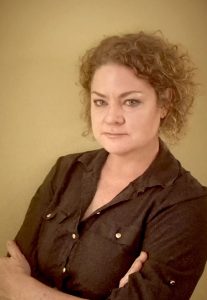
Leonie Joubert

Dr Tara Southey
With a PhD in Viticulture and Climate Science, Dr Tara Southey is co-founder and CEO of TerraClim (Pty) Ltd and has focused on understanding the impacts of climate variability and change on South Africa’s wine and agricultural industries. Dr Southey has led flagship projects on climate risk, water use, and digital decision support, translating cutting edge research into practical tools for producers. Her work has been instrumental in building high-resolution climate databases, mapping terroir and crop suitability, and advancing the use of geospatial intelligence for agriculture. Through TerraClim, she is pioneering integrated climate data platforms that support industry resilience, sustainability, and ESG compliance. Passionate about bridging science, industry, and policy, Dr Southey brings both technical expertise and vision for how climate intelligence can secure South Africa’s agricultural future in a changing world.
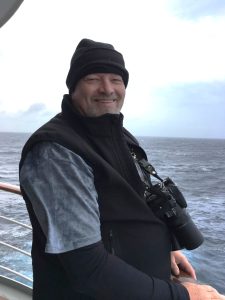
Peter Lukey
Peter’s research focusses on environmental and climate policy and governance with participatory, evidence-based, policymaking and strategy development being a specific area of interest. This focus is due to, and informed, by Peter’s years as a construction planner, environmental activist, project funder (donor), and public servant. In terms of the latter, Peter worked for South Africa’s national environment department for 23 years in various Chief Director posts including regulatory services, air quality and climate change, strategic environmental intelligence, and knowledge and information management. In these roles Peter, among others, led the conception and establishment of the “Green Scorpions” (the Environmental Management Inspectorate – EMI), the drafting and finalisation of the new Air Quality Act and South Africa’s National Climate Change Response Policy. Peter retired from government in 2024 and now works parttime as a researcher and consultant.
